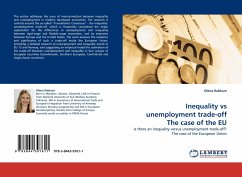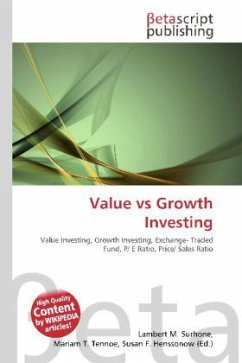The author addresses the issue of interconnection between inequality and unemployment in modern developed economies. The research is centred around the so-called Transatlantic Consensus - the inequality-unemployment trade-off, which is frequently considered the major explanation for the differences in unemployment and inequality between rigid-wage and flexible-wage economies, and by extension between Europe and the United States. The work assesses the existence and significance of such a trade-off inside the European Union, providing a detailed research of unemployment and inequality trends in EU-15 and Norway, and suggesting an empirical model for estimation of the trade-off between unemployment and inequality in four groups of European countries (Scandinavian, Southern European, Continental and Anglo-Saxon countries).
Bitte wählen Sie Ihr Anliegen aus.
Rechnungen
Retourenschein anfordern
Bestellstatus
Storno








